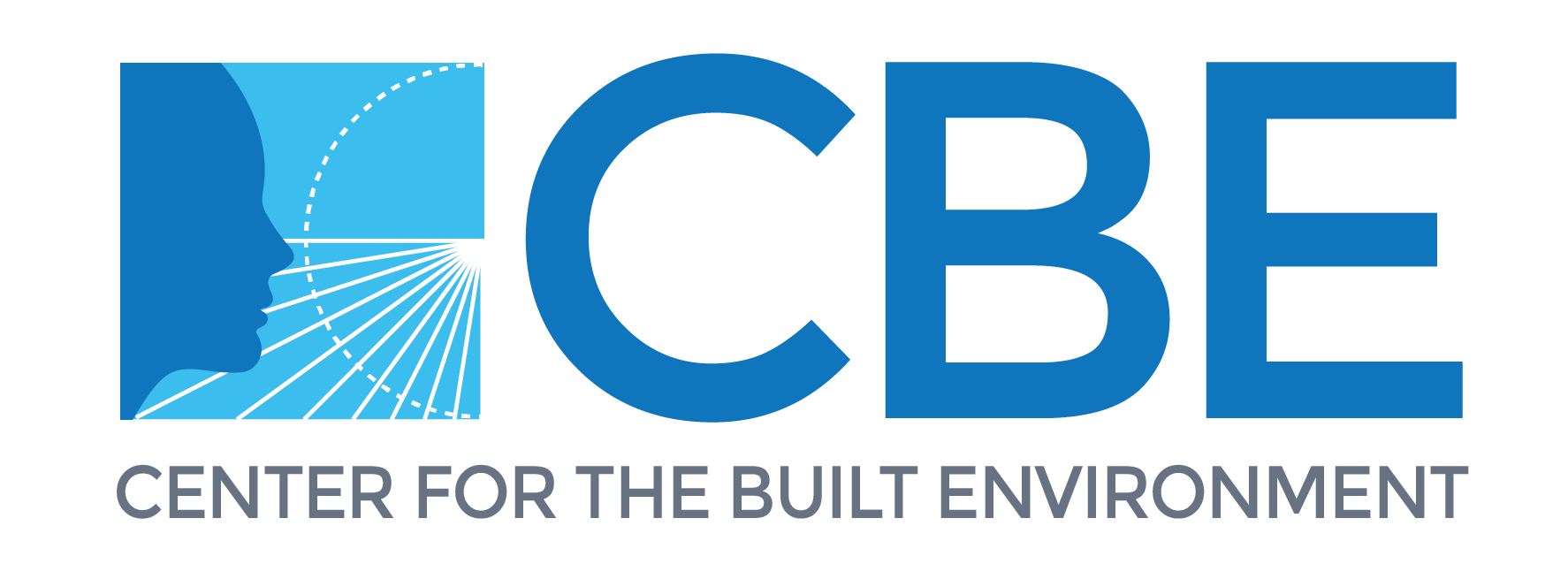As we gear up for our year-end rituals and activities, here at CBE we can take a moment to reflect on our efforts during 2023, and remember our purpose — to contribute towards making a more sustainable and equitable world. We are pleased to report on such wide ranging work, and also note that this would not be possible without the participation of CBE’s Industry Partners. We are grateful for their support and the ongoing contributions of our colleagues, students and affiliates. We wish you all the best for 2024, and below share some of our major accomplishments and milestones.
Upgrades to CBE’s Controlled Environment Chamber: CBE’s controlled environment chamber has been used for research related to human response, indoor environments and mechanical systems. A major renovation was completed this fall and celebrated in a ribbon cutting ceremony and happy hour before CBE’s fall Industry Advisory Board meeting.
New Research on Safe Maximum Thermal Conditions: In April we announced new funding from the California Dept. of Housing and Community Development that will support research around policy language to define maximum safe thermal conditions for California residential buildings. This work will include a literature review, stakeholder workshops, modeling energy impacts, and policy development. Outreach on this important project will begin in early 2024.
New Book on Experiential Design Schemas: CBE’s Associate Director Prof. Gail Brager and her co-author, Mark DeKay, released a book about how to design rich, variable multi-sensory experiences in buildings to engender greater nature-connections and support health and well-being. Each of the 45 schemas is illustrated with numerous photographs of buildings and spaces, and diagrams to demonstrate key concepts. Read more or order a copy >
Expanding Research on Embodied Carbon and Broad Decarbonization Topics: We are expanding the scope of CBE’s research to examine in detail the embodied carbon in buildings and landscapes. This work is of great interest to building industry stakeholders, and has been presented at CBE Industry Advisory Board meetings and in public events (see below). We currently have related five articles or reports in press, and we are working on several funding proposals which we hope to secure in 2024.
New Industry Partners: We are welcomed four companies to the CBE consortium this year, expanding the diverse nature of this group, and adding global breadth from product manufacturing, software and design services. In April we were joined by Midea, a leading global manufacturer of appliances and HVAC equipment. We also welcomed ThermoAnalytics, that provides advanced software for thermal analysis and management, and has collaborated with CBE to include thermal comfort capabilities into its tools. Also joining this spring was M Moser Associates, a global firm offering a wide range of design services. Finally, this fall we welcomed representatives from Sulion, a Spanish company providing high-quality ceiling fans and lighting. You can see the entire list of partners here.
New Research Staff and Visiting Scholars: In 2023 CBE also welcomed new team members who expand the scope of our work and its impact. Matt Roberts joined CBE this spring as a postdoctoral researcher, and is focused on applying life-cycle assessment (LCA) to better understand embodied carbon in construction materials, and has already shared this work at numerous events (below). This fall we were also joined by postdoctoral researcher Yan Wang who is interested in developing HVAC control strategies that are feasible to implement at scale within building automation systems. We are welcomed postdoc Jiayu Li, and we benefit from his expertise in airflow research methods and indoor air quality, including airborne disease transmission and kitchen environments.
Three new international visiting scholars began collaborating with our team this year: Katherine Exss Cid, a PhD student from Chile; Claudiane Ouellet-Plamondon, a professor from Montreal; and Xue Zhai, a PhD student from China. They are working on topics such as thermal comfort for people with disabilities, decarbonization of construction materials and laboratory studies of HVAC systems. Yang Li from Sanken and Yuya Nakazawa from Azbil continue their visiting scholar activity at CBE working on radiant systems and metadata schema. We are grateful they all chose CBE to host them and benefit from their work.
New and updated tools and selected papers
Key to CBE’s mission is to create user-friendly tools for design professionals, students and other building industry stakeholders. Some of our newest developments released year include:
- Online Guide on Fans for Cooling People: Cooling people using fans in coordination with HVAC systems offers significant benefits. An international team at Berkeley and beyond released detailed guidelines to assist building designers and operators with information on settings for chillers, air handling units, environmental conditions and operation strategies. These guidelines are online and free.
- Updates and High Usage for Clima: Based on the request of partners, we updated the Clima tool so users can toggle between SI and IP units, and added detailed documentation. This tool is actively used by thousands of monthly users. The creators also published a paper to document its use and development.
- Energy Savings in a Zero-Energy Building Retrofitted with Fans in a Hot and Humid Climate: A study conducted in a zero-energy building in Singapore found a 32% mechanical system energy reduction and high thermal comfort when fans were used with AC at a higher setpoint temperature. Learn more with this LinkedIn summary or the entire paper.
- Using Virtual Reality Headsets to Evaluate Satisfaction with Window Views: Innovative research methods this year included the use of virtual reality headsets to evaluate satisfaction with window views. The authors created a view access index, and provide suggestions for window-to-wall ratios.
- Boiler Retrofits and Decarbonization in Existing Buildings: HVAC Designer Interviews: CBE investigated methods to reduce carbon emissions from existing large commercial buildings through improved building operations and through building decarbonization, based on interviews with 17 mechanical HVAC designers.
Outreach through numerous public and industry events
CBE staff, students and faculty present frequently at conferences and webinars. All these events are all on our website with links to slides and some videos. Here are several key events from 2023:
- Life-Cycle Assessment and Decarbonization of Affordable Housing : A September webinar on Life-Cycle Assessment and Associated Tools for Building Decarbonization included experts from CBE and industry who demonstrated best practices and case studies using LCA and other tools to document the embodied carbon of building systems. Later than month we participated at Greenbuild 2023, for the session on Decarbonization and Resiliency in Affordable Multi-Family Housing. This featured design strategies, insights from research and case studies that represent the leading edge in this rapidly evolving area.
- Innovative Methods for Integration of Fans with HVAC Systems: This webinar focused on strategies for integrating ceiling fans with HVAC systems, while also sharing new design resources. This featured a zero-energy building retrofitted with fans; using ceiling fans in lieu of terminal ductwork and diffusers, and the cooling capacity of radiant systems when coupled with ceiling fans.
- Modular and Industrial Construction for Low-Carbon Buildings: CBE hosted a symposium with a panel of industry practitioners who are involved in developing and implementing industrialized buildings, and researchers who are leading advanced studies to better understand the potential of these new approaches.
- Talks at the 2023 ASHRAE Winter and Summer Conferences: A number of presentations share findings that emerged from CBE research. This winter Paul Raftery presented distribution losses in heating hot water systems in large commercial buildings. Patrick Wendler presented temperature stratification, performance and myths surrounding heating hot water systems. Akihisa Nomoto presented research on CO2 occupant emission rates in an office setting. Additional topics presented at the summer conference include an overview of high thermal mass radiant systems, a demonstration of ‘Brick’ to scale up ASHRAE 36 control sequences, and a study of thermal infrared sensing for office temperature control.
We are happy with this wider range of accomplishments, which would not be possible without the participation and support of CBE Industry Partners. We again thank these partners, and also our colleagues, students and affiliates, and wish you all the best for 2024!

